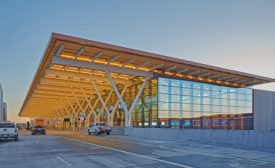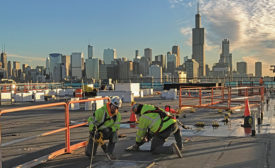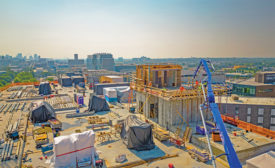Home » Keywords: » Kansas City
Items Tagged with 'Kansas City'
ARTICLES
Midwest 2024 Legacy Award Winner Ray Kowalik
Outgoing Burns & McDonnell CEO Ray Kowalik fostered success for employees, clients and communities alike
Read More
ENR Midwest Best Projects 2023
Award of Merit, Airport/Transit Kansas City International Airport,
November 13, 2023
ENR Midwest 2023 Top Specialty Contractors: Specialty Contractors Excel in Good Economy Despite Labor Shortage
According to ENR Midwest's ranking of Top Specialty Contractors, the largest 25 firms posted $6.48 billion in regional revenue in 2022
Read More
2023 Top Contractors: Midwest Contractors Anticipate Evolving Opportunities Ahead
While the majority of Midwest contractors see strength across the region, economic and societal developments continue to weigh
Read More
ENR Midwest’s 2023 Top Young Pros
Emerging leaders in design and construction not only chart their own path to success, they help others to succeed. Their engineering feats and mastery of cutting-edge technology allow these standouts to shape the industry’s future.
Read More
Midwest Best Projects
Best Project, Small Project: J. Rieger Electric Park Garden Addition
Read MoreThe latest news and information
#1 Source for Construction News, Data, Rankings, Analysis, and Commentary
JOIN ENR UNLIMITEDCopyright ©2024. All Rights Reserved BNP Media.
Design, CMS, Hosting & Web Development :: ePublishing






.jpg?height=168&t=1677004525&width=275)

